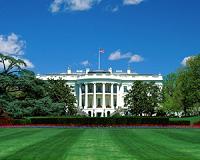 |
Washington (AFP) Nov 18, 2010 President Barack Obama warned Thursday it was a "national security imperative" for the Senate to ratify a new nuclear pact with Russia, escalating a showdown which has put his credibility at risk. Obama gathered a hall of fame line-up of distinguished US statesmen and women, piling pressure on Republican holdouts who oppose the pact's ratification in a "lame duck" session of Congress this year. "It is a national security imperative that the United States ratify the new START treaty this year," Obama said, alongside former Republican secretaries of state and Cold War negotiators Henry Kissinger and James Baker. "This is not about politics, this is about national security," Obama said, piling pressure on Republicans in the Senate to relent and allow a vote on the pact, which cuts US and Russian nuclear arsenals, before the end of the year. Obama said a failure to pass the new Strategic Arms Limitation Treaty agreed this year would harm America's national security, its "reset" relations with Moscow and keep US arms inspectors away from the Russian nuclear arsenal. Asked whether he had the votes in the Senate to pass the treaty, despite Republican delaying tactics, Obama replied "I am confident that we should be able to get the votes." But it appears far from clear that the treaty can get the 67 votes needed for ratification in the 100-seat chamber in a vote that would represent a much-needed foreign policy victory for the Obama White House. The task will be even tougher in January when a new Congress, elected in November 2 polls in which Republicans routed Democrats, takes office. Obama spoke hours before leaving for the NATO summit in Portugal, where he will see Russian President Dmitry Medvedev, whom he assured in Japan on Sunday that passing START was his top priority. The White House was stunned earlier this week when Arizona Senator Jon Kyl, considered the key stumbling block to passage of the treaty, said he doubted the pact could be brought up in the "lame duck" session. Failure to pass the deal would suggest that Obama is severely weakened politically after the mid-term polls cast doubt on his ability to pass major legislation and represent a personal humiliation in front of other world leaders. Obama's guests in the Roosevelt Room of the White House, as well as Kissinger and Baker, included former Republican national security advisor Brent Scowcroft and former Democratic secretary of state Madeleine Albright. Former senator Sam Nunn and his partner in Senate arms control work, Republican Senator Richard Lugar, were also in the room, along with president Bill Clinton's defense secretaries William Perry and William Cohen. The treaty restricts each nation to a maximum of 1,550 deployed warheads, a cut of about 30 percent from a limit set in 2002. It would also return US inspectors who have been unable to monitor Russia's arsenal since the agreement's predecessor lapsed in December 2009. Obama said he had put Vice President Joe Biden, who spent more than 30 years in the Senate, in charge of the administration's push to pass START and asked him to work "day and night" until it is done. Secretary of State Hillary Clinton, who sat opposite Obama in Thursday's meeting, and who has good relations with her former Republican colleagues in the Senate, is also intensely involved. "There is no higher national security priority for the lame duck Congress," Obama said, adding "the stakes for American national security are clear and they are high." "If we ratify this treaty we are going to have a verification regime in place to track Russia's strategic nuclear weapons, including US inspectors on the ground." "If we don't, then we don't have a verification regime, no inspectors, no insights into Russia's strategic arsenal, no framework for cooperation between the world's two nuclear superpowers." Obama also hinted that Republicans were being driven by partisan motives, saying that every US president since Ronald Reagan had agreed an arms treaty with Moscow and won Senate ratification. Kyl said Tuesday he opposed a vote because of "complex and unresolved issues" about "modernization" of the US nuclear arsenal -- ensuring that the US deterrent remains credible. In response to Kyl's concerns, the White House weeks ago added 4.1 billion dollars over five years to its 10-year budget of 80 billion dollars for that purpose. Other Republicans want iron-clad assurances the pact will not hamper US missile defense plans, citing a unilateral statement from Moscow that moves on that front risked voiding the treaty.
Share This Article With Planet Earth
Related Links Learn about nuclear weapons doctrine and defense at SpaceWar.com Learn about missile defense at SpaceWar.com All about missiles at SpaceWar.com Learn about the Superpowers of the 21st Century at SpaceWar.com
 White House predicts START passage this year
White House predicts START passage this yearWashington (AFP) Nov 17, 2010 The White House predicted Wednesday that the US Senate will ratify a landmark nuclear treaty with Russia this year despite stiff Republican objections that have clouded the agreement's fate. The new Strategic Arms Reduction Treaty (START) "will come up and I think the treaty will be voted on. And I think we'll have enough votes to pass it," spokesman Robert Gibbs told reporters. But it w ... read more |
|
| The content herein, unless otherwise known to be public domain, are Copyright 1995-2010 - SpaceDaily. AFP and UPI Wire Stories are copyright Agence France-Presse and United Press International. ESA Portal Reports are copyright European Space Agency. All NASA sourced material is public domain. Additional copyrights may apply in whole or part to other bona fide parties. Advertising does not imply endorsement,agreement or approval of any opinions, statements or information provided by SpaceDaily on any Web page published or hosted by SpaceDaily. Privacy Statement |